Blog
Can we Overcome Contamination in Recycling and Waste Management in Toronto – We say Yes!
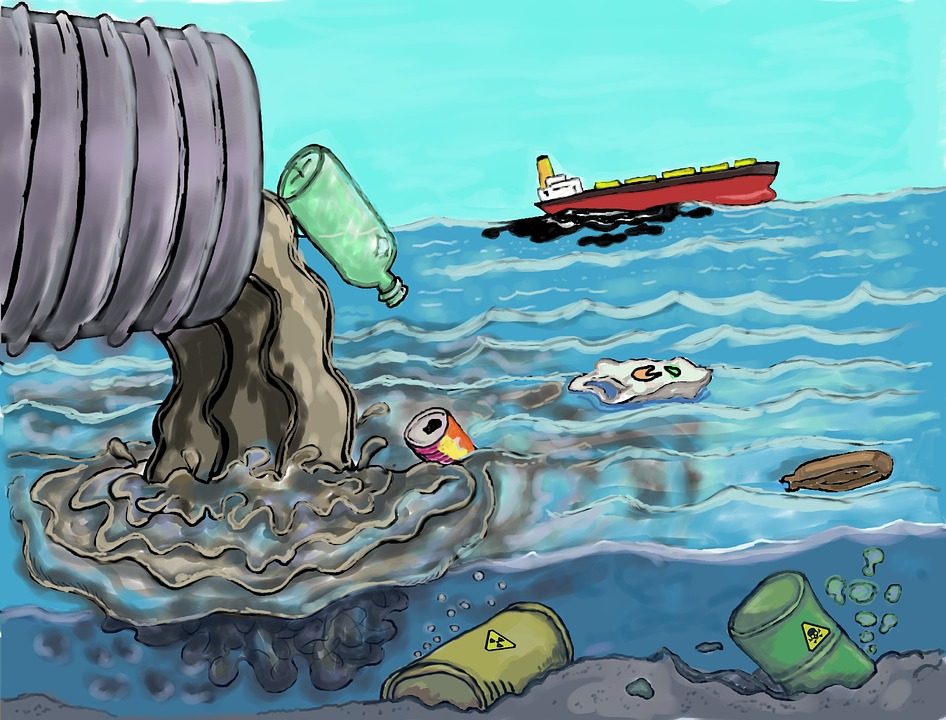 The fight against recycling contamination is going to be a difficult battle to win. After all, different municipalities in Canada come with different recycling rules. Newcomers to the city, either from other areas of Canada or from abroad, are usually not educated in what’s expected of them living in Toronto. Even some Torontonians are not clear on what’s recyclable and what isn’t. The result of these variables is recycling being contaminated.
The fight against recycling contamination is going to be a difficult battle to win. After all, different municipalities in Canada come with different recycling rules. Newcomers to the city, either from other areas of Canada or from abroad, are usually not educated in what’s expected of them living in Toronto. Even some Torontonians are not clear on what’s recyclable and what isn’t. The result of these variables is recycling being contaminated.
Years ago, recycling involved spreading out simple materials like paper, aluminum and plastics into individual material streams. Recycling these materials was far easier as there was no cross-contamination and rarely would someone dump other products inside. For the last two decades, the recycling industry has changed predominantly to ‘single-stream’ which puts all recyclables into a single bin. Establishing single-stream recycling stream boosted participation significantly to the point now where recycling is at its highest levels.
Read more: Can we Overcome Contamination in Recycling and Waste Management in Toronto – We say Yes!
Are We Missing out on Economic Benefits by not pursuing Waste Management and Recycling in Toronto – a Discussion
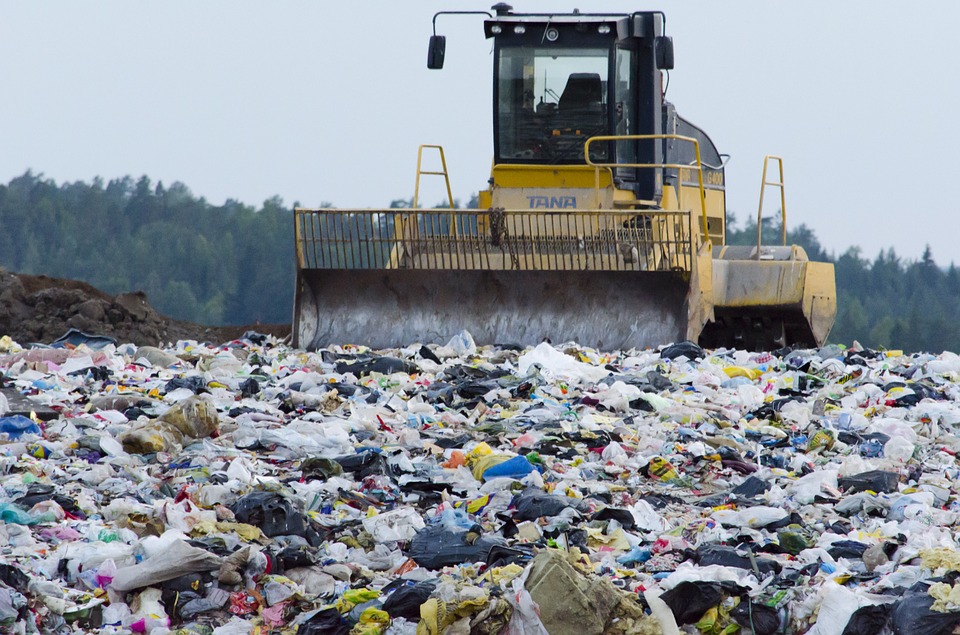 Toronto produces tremendous amounts of waste every day and with that, there comes a responsibility to recycle. By not pursuing every opportunity to recycle and/or to develop further recycling facilities, we are not only creating a less environmentally sustainable city but we are also missing out on significant economic benefits.
Toronto produces tremendous amounts of waste every day and with that, there comes a responsibility to recycle. By not pursuing every opportunity to recycle and/or to develop further recycling facilities, we are not only creating a less environmentally sustainable city but we are also missing out on significant economic benefits.
Though there’s healthy ongoing developments happening in Toronto recycling, there’s still so much promise yet explored. The untapped potential is something we hope to tackle in Toronto in the decades to come. Toronto has resources that other regions in Canada don’t have. As one of the biggest cities, one of the most culturally diverse in Canada, and with so much corporate involvement, it’s important we use these resources.
Top 6 Reasons People rent Dumpsters in Ontario
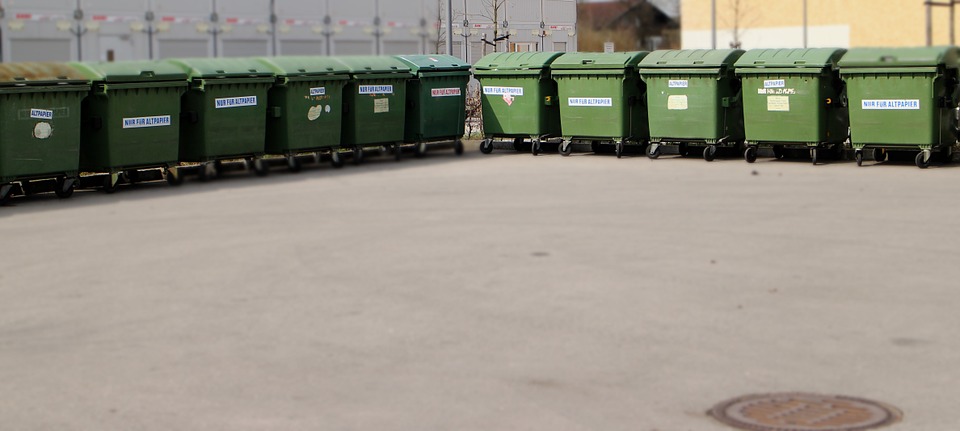 Every day, we rent our numerous dumpsters across Toronto and the southern Ontario region. Coming across our desk is countless requests for dumpster rentals, bin rentals, waste disposal, construction waste disposal, and construction bins. In our decade plus of experience, these appear to be the top six reasons that people rent dumpsters on Ontario.
Every day, we rent our numerous dumpsters across Toronto and the southern Ontario region. Coming across our desk is countless requests for dumpster rentals, bin rentals, waste disposal, construction waste disposal, and construction bins. In our decade plus of experience, these appear to be the top six reasons that people rent dumpsters on Ontario.
Commercial construction
Commercial construction companies love renting dumpsters from companies like us. We bring them their requested size bin and that gives them an easy place to throw the waste materials they don’t need. For larger Toronto construction companies undertaking sizeable cleaning or improvement projects, temporary dumpsters are a necessary to ensure safe, legal disposal.
How to Rent a Dumpster for Renovations, Home Improvement Projects, and Demolitions
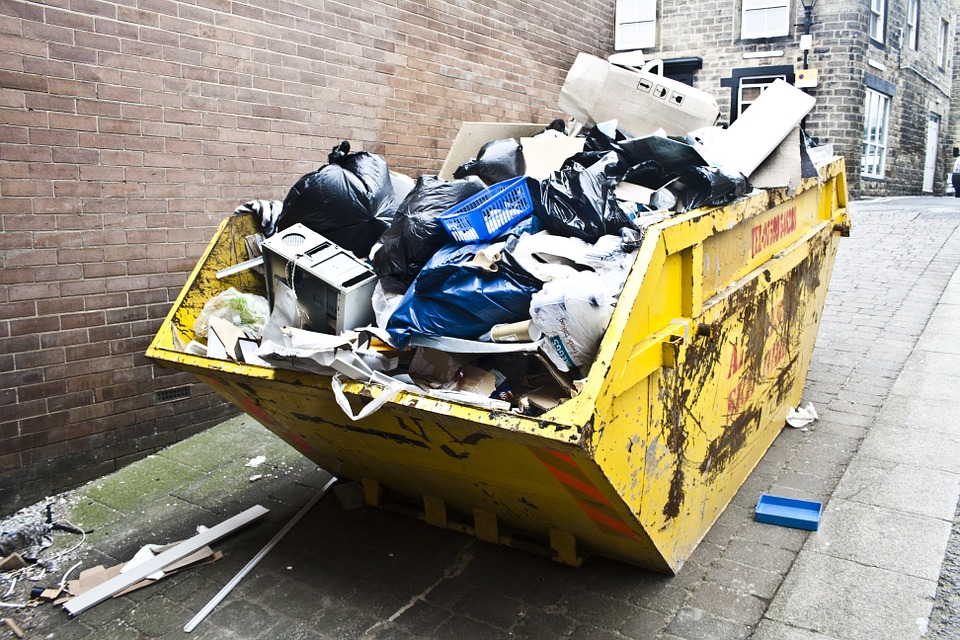 Renting a dumpster doesn’t have to be difficult. Calling a local dumpster rental company like Core Mini Bins, it can be as easy as speaking with a representative, answering a few questions, and then, having what you need dropped off on the same day.
Renting a dumpster doesn’t have to be difficult. Calling a local dumpster rental company like Core Mini Bins, it can be as easy as speaking with a representative, answering a few questions, and then, having what you need dropped off on the same day.
For home improvement projects, demolitions, and renovations, obviously the requirements of a dumpster can vary in size, weight, etc. To maximize your dollar and ensure you are renting the correct dumpster for your needs, it’s important to keep in mind a few things.
Read more: How to Rent a Dumpster for Renovations, Home Improvement Projects, and Demolitions
5 Creative Ways Toronto wants to Reduce Waste and Increase Recycling
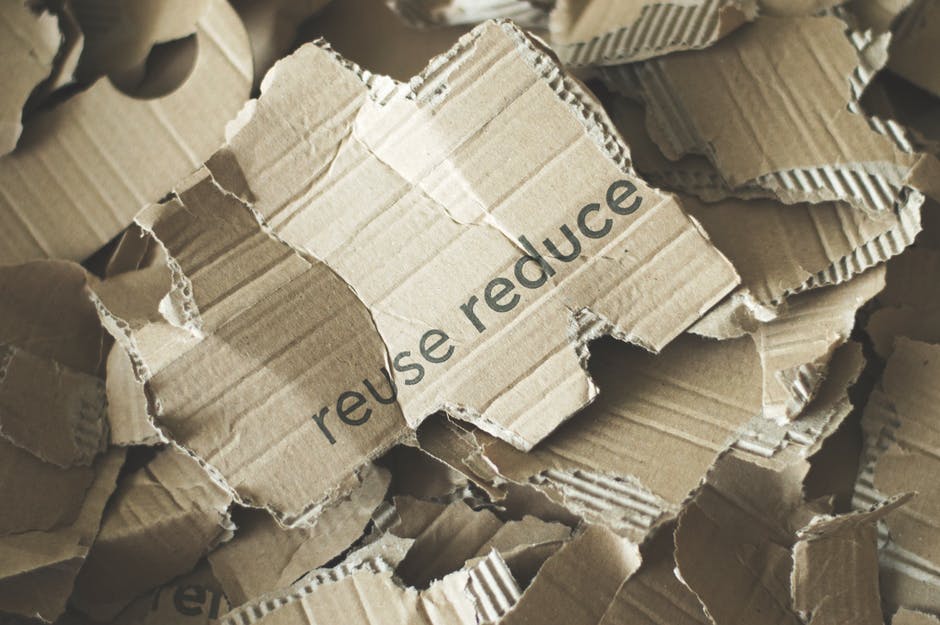 The City of Toronto has launched five programs targeting waste reduction in the GTA. These creative new initiatives seek to help grow the city’s existing eco-friendly community partnerships. Among them are initiatives to repair and repurpose abandoned bicycles, a program to repair ripped clothing, and a program that allows one to share the extra food they grow in their garden.
The City of Toronto has launched five programs targeting waste reduction in the GTA. These creative new initiatives seek to help grow the city’s existing eco-friendly community partnerships. Among them are initiatives to repair and repurpose abandoned bicycles, a program to repair ripped clothing, and a program that allows one to share the extra food they grow in their garden.
These five initiatives fall under Toronto’s Community Reduce and Reuse program which oversees a number of priority neighborhoods in Toronto. Several bicycle repair hubs are being established across nearly a dozen Toronto neighborhoods, hoping to provide citizens from all over the city something within walking distance. Toronto already collects thousands of bicycles every year, seeing these abandoned on the streets and thereby creating unnecessary waste. By refurbishing them, a bicycle can be given back to the community without creating any additional waste.
Read more: 5 Creative Ways Toronto wants to Reduce Waste and Increase Recycling
Why more Canadians are Searching for Junk Removal Services when they move
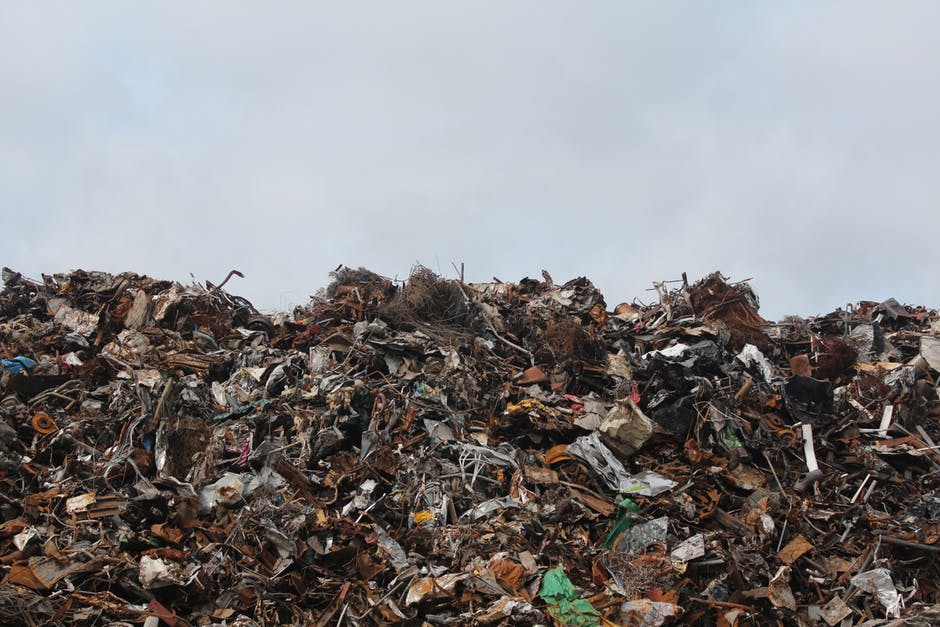 At different points in our lives, each one of us inevitably comes to the moment where we’ve had to move. In our experience as one of Toronto’s top junk removal companies, we see more Canadians today choosing to hire junk removal services when they move.
At different points in our lives, each one of us inevitably comes to the moment where we’ve had to move. In our experience as one of Toronto’s top junk removal companies, we see more Canadians today choosing to hire junk removal services when they move.
From homeowner to homeowner, hiring a junk removal company makes it easy to get rid of some of the older stuff we don’t want to take with us to our new place. If you don’t have the time to coordinate the drop-off of older furniture, appliances, and junk, this is a great way to get it off your hands fast. All you will need is a phone number and then, the company will be there in your front driveway to collect anything that’s just collecting dust.
Read more: Why more Canadians are Searching for Junk Removal Services when they move
Reducing Waste and Diverting Waste on Construction Sites in Toronto
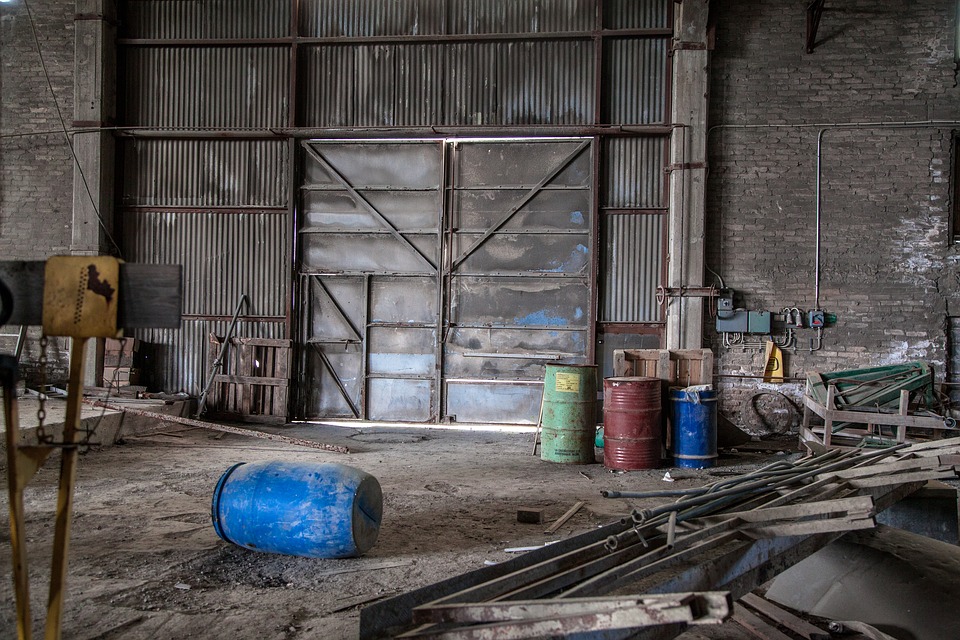 Home renovations, building a new home, or working on an addition to an existing home are environments where significant waste is created. In years’ past, cabinetry, plumbing, hardware, and all sorts would be casually tossed into a dumpster and taken to the nearest dump without a second thought. Today, as new recycling opportunities have presented themselves, materials from construction sites in Toronto can now be diverted, instead of being fed to a landfill.
Home renovations, building a new home, or working on an addition to an existing home are environments where significant waste is created. In years’ past, cabinetry, plumbing, hardware, and all sorts would be casually tossed into a dumpster and taken to the nearest dump without a second thought. Today, as new recycling opportunities have presented themselves, materials from construction sites in Toronto can now be diverted, instead of being fed to a landfill.
For construction sites in Toronto, diverting waste is always going to begin by renting a dumpster, bin, or waste container. By installing a large bin on the construction site, it provides the chance to gather non-hazardous building materials in a safe place. This might include lumber, scrap metal, drywall, concrete, asphalt, and/or glass. When the bin is full, just give your local waste management company a call to get it hauled off and sorted as requested.
Read more: Reducing Waste and Diverting Waste on Construction Sites in Toronto
4 Questions to Ask before renting a Dumpster, Mini Bin, or Waste Container
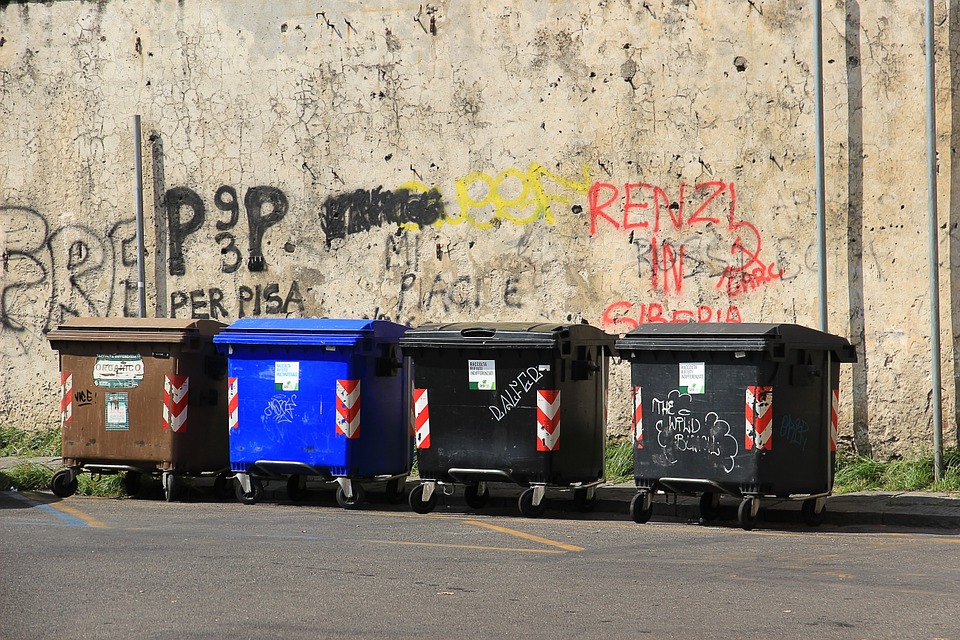 There are a number of questions we field from new customers seeking to rent a dumpster, mini bin, or waste container. Though there are some basic questions we find, there are some equally important questions that can sometimes go unanswered. To ensure that you have all the information you need to feel comfortable renting a dumpster, don’t hesitate to ask anything you’re curious about.
There are a number of questions we field from new customers seeking to rent a dumpster, mini bin, or waste container. Though there are some basic questions we find, there are some equally important questions that can sometimes go unanswered. To ensure that you have all the information you need to feel comfortable renting a dumpster, don’t hesitate to ask anything you’re curious about.
What are my dumpster storage options
It is up to the customer to decide where they wish to store their dumpsters. If you do not know where you intend to put it, you may have a problem on your hands. A representative might be able to assist in providing some ideas on a safe, convenient place to put it. If you don’t have space on your property, you may be able to keep it on the street. That said, you will likely need permission from the city and, in most urban environments, might be near impossible to clear.
Read more: 4 Questions to Ask before renting a Dumpster, Mini Bin, or Waste Container
Did you Know your Municipal Government has no say on Where your Waste ends up
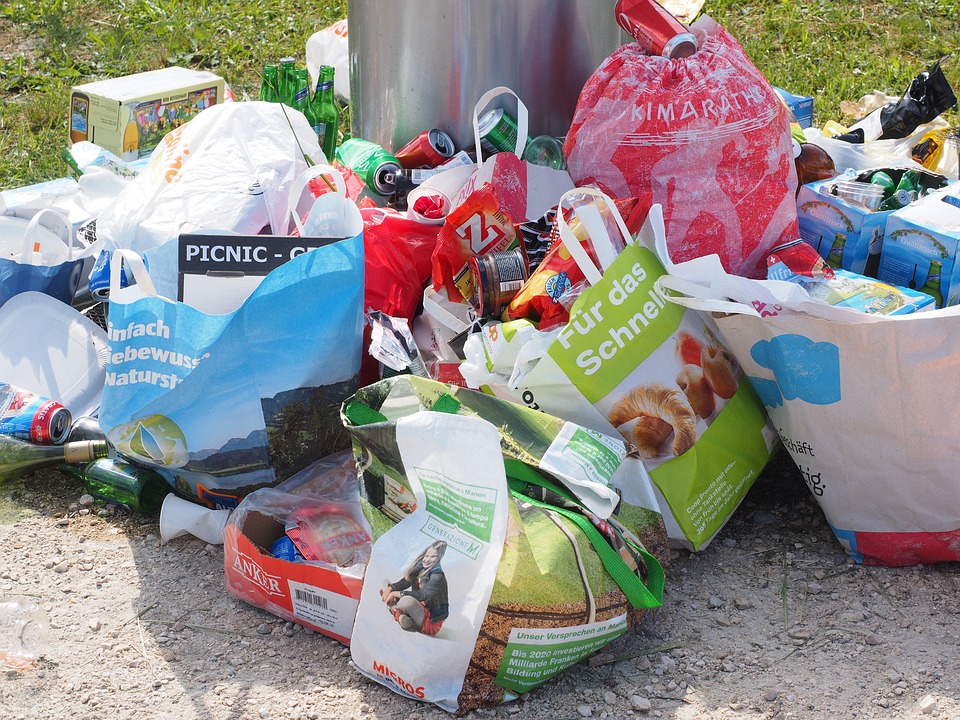 Industrial, commercial, and institutional waste in Ontario, contrary to perception, is not something controlled by the province nor by any municipal government.
Industrial, commercial, and institutional waste in Ontario, contrary to perception, is not something controlled by the province nor by any municipal government.
Instead, the private businesses creating this industrial or commercial waste are the only ones overseeing where their garbage is shipped. As long as it’s an approved location, private businesses can largely move their waste to wherever they so choose. With virtually no say over where waste ends up in Ontario, this has created at least a half-dozen problematic scenarios in regions across the province.
As waste accumulates, what once were picturesque small town communities may begin to see their appeal run out. According to a statement from the Ministry of Environment and Climate Change, Ontario requires an additional sixteen landfills within the next three decades if it’s going to keep on track with managing its waste. Where those Ontario landfills will go and/or whether there will be expansions on existing sites is unknown.
Read more: Did you Know your Municipal Government has no say on Where your Waste ends up
Canadians are Creating more Waste and We Don’t Know What to Do about It
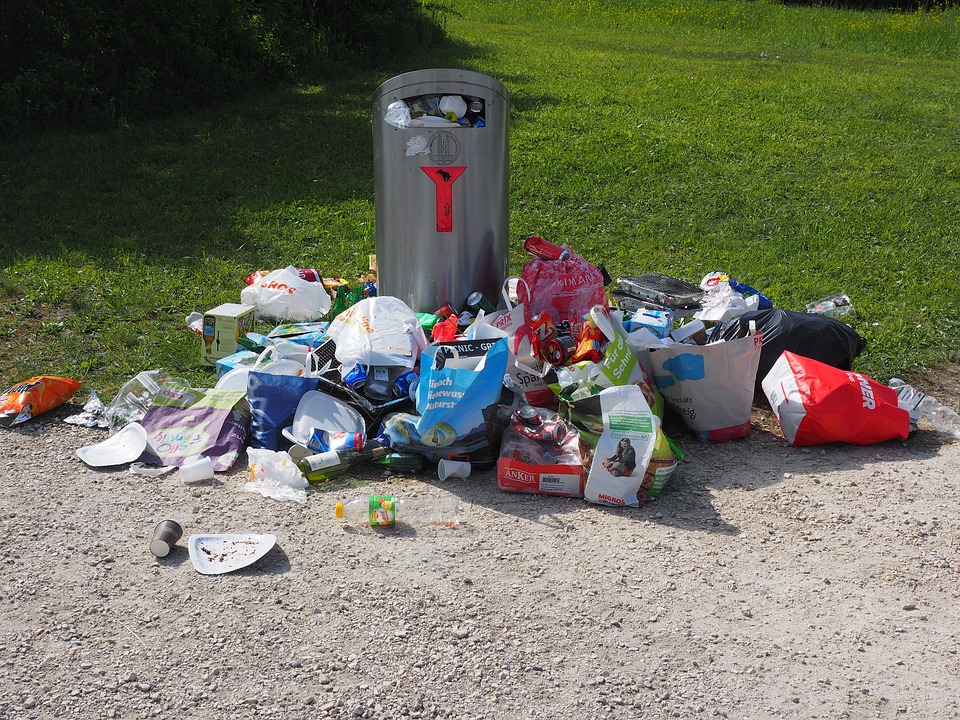 According to a recent report shared by the North American Free Trade Agreement (NAFTA) organization, Canadians’ waste output is increasing with no reduction in sight. In addition to criticizing the Canadian government for their lack of input, it’s also been widely publicized the lack of infrastructure in place to help households handle their organic garbage. Lastly, it does not appear the Canadian markets for recycled waste are as developed as they could be in, according to this ground-breaking report.
According to a recent report shared by the North American Free Trade Agreement (NAFTA) organization, Canadians’ waste output is increasing with no reduction in sight. In addition to criticizing the Canadian government for their lack of input, it’s also been widely publicized the lack of infrastructure in place to help households handle their organic garbage. Lastly, it does not appear the Canadian markets for recycled waste are as developed as they could be in, according to this ground-breaking report.
Though municipalities across Canada are making some amazing strides in waste management, organic waste handling, landfill diversion, and recycling, as a country, we’re falling behind. It’s no secret that, much like our neighbours in the United States, we love consumption. Just as an example, residential food, yard, and paper waste increased from 230 kilograms per person in 2002 to almost 300 kilograms per person according to 2012’s numbers. That’s a big jump! Arguably, what’s even worse is less than a third of this waste is being diverted from landfills and into recycling processes.
Read more: Canadians are Creating more Waste and We Don’t Know What to Do about It
4 Easy Steps to Renting a Bin, Mini Bin, Dumpster, or Waste Container
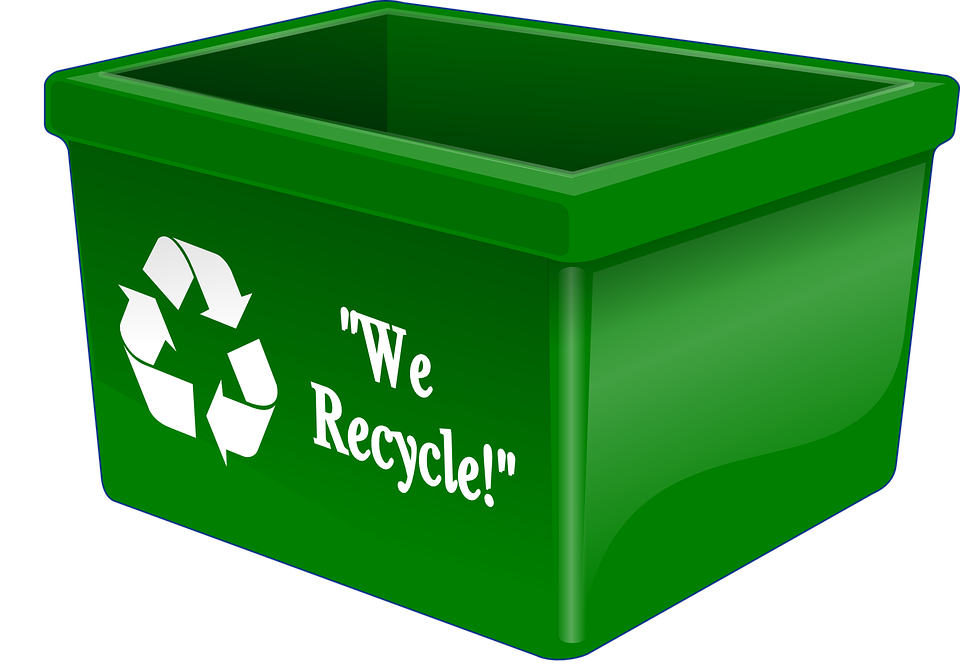 Renting a bin, mini bin, dumpster, or waste container in Toronto for your residential or commercial project has been made easy. Core Mini Bins even offers same day service if you need your bin today. As one of the top Toronto dumpster rental companies, we do our best to deliver the highest quality service at the most affordable price. Choose from bin rentals, disposal bins, dumpster rentals, waste disposal bins, garbage bins, mini bins, junk removal, and construction bins. For those that have never rented before, here’s 4 easy steps to getting your rental and what to expect once you have it.
Renting a bin, mini bin, dumpster, or waste container in Toronto for your residential or commercial project has been made easy. Core Mini Bins even offers same day service if you need your bin today. As one of the top Toronto dumpster rental companies, we do our best to deliver the highest quality service at the most affordable price. Choose from bin rentals, disposal bins, dumpster rentals, waste disposal bins, garbage bins, mini bins, junk removal, and construction bins. For those that have never rented before, here’s 4 easy steps to getting your rental and what to expect once you have it.
The first step is to give us a call and speak with a representative to determine the exact size of bin you need. This can be a little tricky for Toronto residents inexperienced with bin rentals however one of our experts is sure to be of assistance. By renting too large, evidently, you’ll end up overpaying on size that you won’t use. By renting too small, you may require upsizing at a later date or risk paying additional fees if it ends up being overfilled. It always makes the most sense to speak with one of our representatives to get a better idea on what’s best for your disposal project and to share what materials you would like to get rid of.
Read more: 4 Easy Steps to Renting a Bin, Mini Bin, Dumpster, or Waste Container
This is What Happens when you illegally Dispose of Industrial Waste
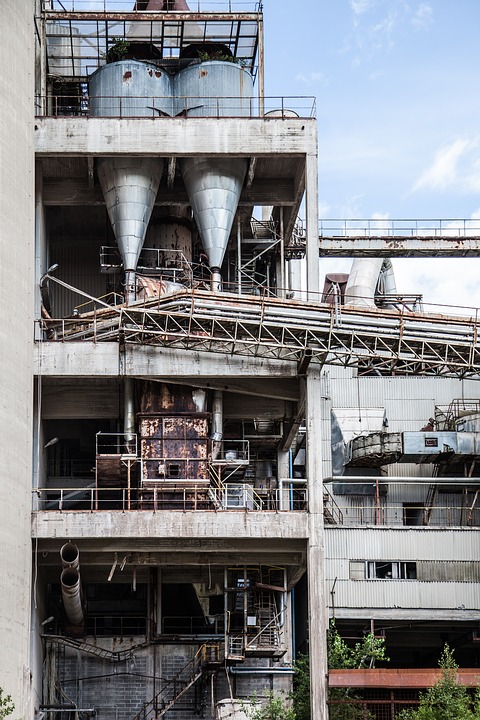 The extensive development across Toronto, the GTA, and southern Ontario has led to record amounts of construction and industrial waste. It has been imperative for this waste to be accurately and appropriately disposed of.
The extensive development across Toronto, the GTA, and southern Ontario has led to record amounts of construction and industrial waste. It has been imperative for this waste to be accurately and appropriately disposed of.
For the vast majority of contractors and related stakeholders, ensuring the proper disposal of industrial waste is a high priority and it’s one they accomplish routinely. There have occasionally been instances however when contractors have attempted to cut corners, resulting in environmental damage, health and safety at risk, and financial penalties.
For any contractor who’s ever wondered how much a fine is for illegally disposing of industrial waste, this past June, SNC-Lavalin Constructors, Dragodos Canada, and the EllisDon Corporation were charged $95,000 for illegally dumping industrial waste in violation of the Environmental Protection Act (EPA).
Read more: This is What Happens when you illegally Dispose of Industrial Waste
What Can we use Construction Waste to Build – here are some Options!
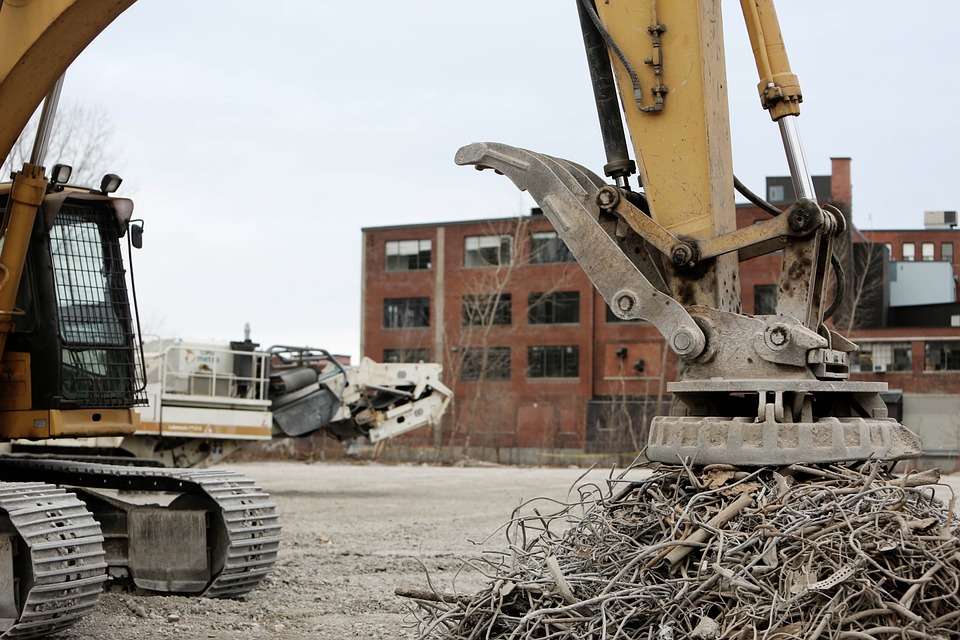 It’s easy to forget how valuable construction waste actually is. So much of it can oftentimes be recycled and/or reused into similar construction materials. What cannot be reused for the same purpose can be recycled into numerous products from gas masks to sports equipment!
It’s easy to forget how valuable construction waste actually is. So much of it can oftentimes be recycled and/or reused into similar construction materials. What cannot be reused for the same purpose can be recycled into numerous products from gas masks to sports equipment!
As a waste management company in Toronto specializing in construction waste disposal and recycling, we know the value of these materials. Every year in Toronto, thousands of pounds of building materials are derived from construction waste. To let these materials sink into the local GTA landfills is a huge missed opportunity. Instead of discarding these materials as simply ‘garbage’, working with a construction waste company like Core Mini Bins ensures they’re put to good use.
Read more: What Can we use Construction Waste to Build – here are some Options!
Is Charging Residents for Track Pick-up a good Way to reduce Residential Waste – a Discussion
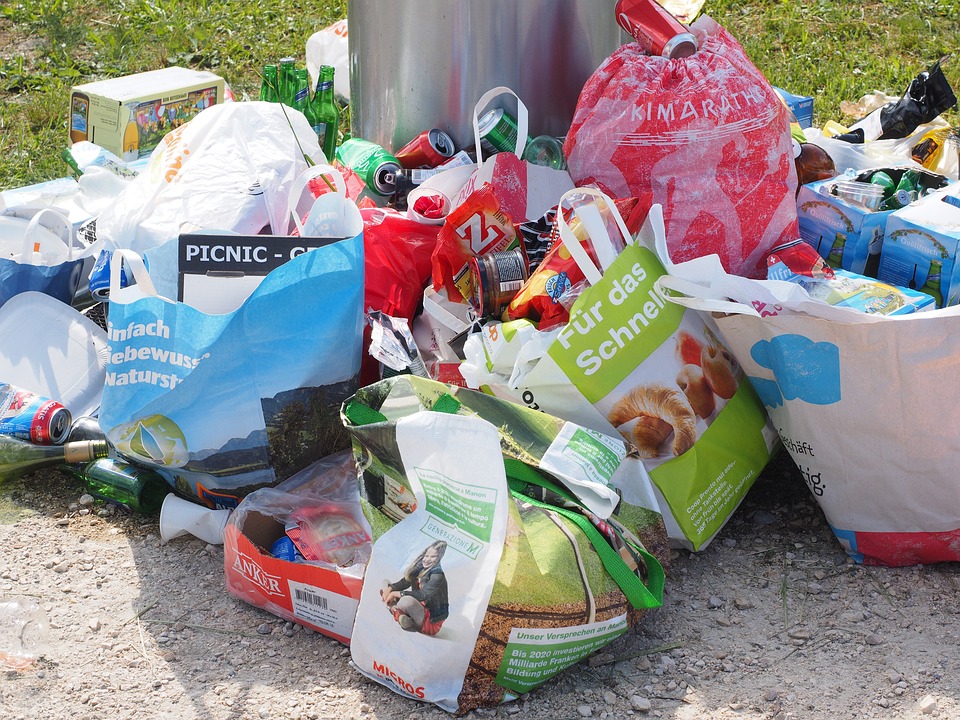 Cities across the world are considering or have already changed the way that they charge for residential waste pick-up. Regina, Saskatchewan is seeking to reduce their waste using a similar approach. The City wants to charge residents for trash pick-up based on the size of the bin used. Thereby, households that produce more waste would be charged higher than those that produce less waste.
Cities across the world are considering or have already changed the way that they charge for residential waste pick-up. Regina, Saskatchewan is seeking to reduce their waste using a similar approach. The City wants to charge residents for trash pick-up based on the size of the bin used. Thereby, households that produce more waste would be charged higher than those that produce less waste.
The ‘user-pay’ garbage system is thought to be an effective way at diverting waste from the City’s landfills however it does not necessary address the root causes of waste. Should this new user-pay system be put into law, it will of course cause many households to examine their waste output. This is a great thing and it could absolutely cause waste creation to lower in Regina.
Why Do Human Beings produce So Much Waste – here’s the Answer!
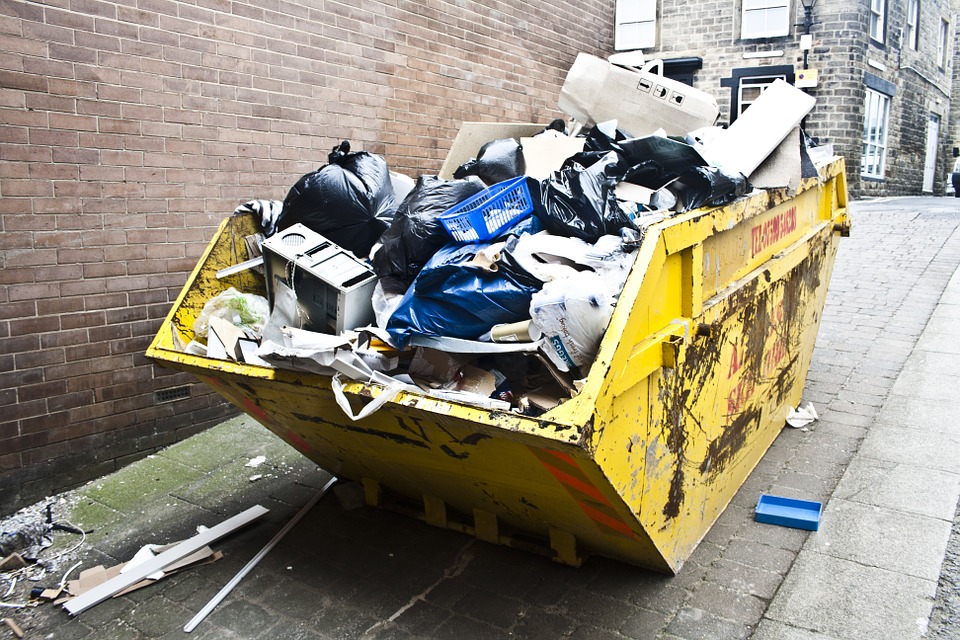 As human beings, let’s face it, we create immense amounts of waste! It’s sort of become our nature. Every year, human beings generate more than 1.3 billion tons of trash and most of this is being put out into the environment untreated. Western nations struggle with places to put their waste, developing nations struggle to remove theirs, and in the meantime, the accumulation of it in regions all over the world is difficult to ignore. If you’ve ever wondered why human beings product so much waste, here’s some answers.
As human beings, let’s face it, we create immense amounts of waste! It’s sort of become our nature. Every year, human beings generate more than 1.3 billion tons of trash and most of this is being put out into the environment untreated. Western nations struggle with places to put their waste, developing nations struggle to remove theirs, and in the meantime, the accumulation of it in regions all over the world is difficult to ignore. If you’ve ever wondered why human beings product so much waste, here’s some answers.
Poor waste management infrastructure.
Waste management systems across Canadian and international cities are failing us. The reason why so much plastic ends up in our oceans is because waste management infrastructure allows it to happen. More than half of the world’s plastic litter comes from ineffective waste management infrastructures from countries like China, Indonesia, the Philippines, Thailand, and Vietnam. Though Canada’s infrastructure is much more advanced in terms of waste management and recycling, we need to examine opportunities to limit our waste by improving on its efficiencies.
Read more: Why Do Human Beings produce So Much Waste – here’s the Answer!
What is the Excavation like at Yonge-Bloor for Canada’s Tallest Building – here’s a look!
 Bloor 1 is going to be Canada’s tallest building when it is inevitably completed. Construction of what has been called ‘The One’ began in August, 2017. An official ceremony followed later that year in October to celebrate the first few months of building this eighty-five storey luxury tower.
Bloor 1 is going to be Canada’s tallest building when it is inevitably completed. Construction of what has been called ‘The One’ began in August, 2017. An official ceremony followed later that year in October to celebrate the first few months of building this eighty-five storey luxury tower.
The excavation of Yonge-Bloor’s tallest tower has begun with the early stages delving into a building what will anchor the building’s exoskeleton. The work put in this month and in the next few months are what will determine how strong the structure is in relation to its foundation. There are also subsequent procedures being followed to prepare to move a heritage building in the neighborhood as well.
Read more: What is the Excavation like at Yonge-Bloor for Canada’s Tallest Building – here’s a look!
Should otherwise Healthy Marijuana Waste be Destroyed according to Health Canada – a Discussion
 Health Canada currently requires marijuana waste be destroyed in its entirely. Pro-marijuana advocates are arguing that this might be a huge missed opportunity, contributing to Canada’s waste problem while ignoring alternative uses of ‘marijuana waste’. Annually, thousands of kilograms of waste is being tossed out from licensed marijuana producers in Canada. The unfortunate truth of the matter is that Health Canada’s policy prevents the possible opportunities that may exist from repurposing this waste product.
Health Canada currently requires marijuana waste be destroyed in its entirely. Pro-marijuana advocates are arguing that this might be a huge missed opportunity, contributing to Canada’s waste problem while ignoring alternative uses of ‘marijuana waste’. Annually, thousands of kilograms of waste is being tossed out from licensed marijuana producers in Canada. The unfortunate truth of the matter is that Health Canada’s policy prevents the possible opportunities that may exist from repurposing this waste product.
As a Toronto waste management company, we believe in minimizing waste at every opportunity and finding ways to repurpose the waste that we make as a region. There are some marijuana-growing businesses that toss as much as half of their grown plants into recycling or composting. There may be opportunities to reuse the stem as fibre, turning it into products like T-shirts, animal feed, and even housing siding, among other possibilities. The stalk, stem, and leaves could be used as construction insulation or even reinforcing cement.
Why Burning Waste and Rubbish is not the Answer to Clean Energy
 Since the 1880s, cities across the United States have been actively burning solid waste. Throughout nearly a century of burning waste and rubbish, the method was praised as an easy and convenient way to get rid of trash.
Since the 1880s, cities across the United States have been actively burning solid waste. Throughout nearly a century of burning waste and rubbish, the method was praised as an easy and convenient way to get rid of trash.
Today, burning waste is continually framed as an environmentally-friendly resource, using the heat from burning trash to produce steam to generate electricity. Across North America, there are a number of these waste-to-energy plants, which might seem like a brilliant way to get rid of one’s trash.
Since the 1980s, there has been growing opposition to the practice of burning waste, with some accusing these facilities of being major polluters. Recently, there has been movement towards co-incineration facilities which would burn waste alongside traditional fossil fuels for energy.
Read more: Why Burning Waste and Rubbish is not the Answer to Clean Energy
Get Rid of your Spring Cleaning Junk Removal the right way with Core Mini Bins
 With every spring comes the opportunity to give it a good clean. Instead of throwing everything to the curb, give Core Mini Bins a call. We do spring cleaning junk removal in Toronto the right way. Whenever we set out on a junk removal adventure, we do so keeping in mind a commitment to repurpose and reuse any materials we can while ensuring that those which cannot be recycled are appropriately processed at waste management facilities in the GTA.
With every spring comes the opportunity to give it a good clean. Instead of throwing everything to the curb, give Core Mini Bins a call. We do spring cleaning junk removal in Toronto the right way. Whenever we set out on a junk removal adventure, we do so keeping in mind a commitment to repurpose and reuse any materials we can while ensuring that those which cannot be recycled are appropriately processed at waste management facilities in the GTA.
Every residential home and commercial establishment deserves the opportunity to clean themselves out a bit in the spring. After a cold Canadian winter, there’s nothing more satisfying than going in and getting rid of some junk. Along with the flowers and sunshine though, we’ve noticed not everyone gives thought to the impact their spring cleaning processes have. Trash dumped at the side of the road, mixing in possible recycling products with waste, illegally dumping, and illegally using private dumpsters are all unfair to the environment around us.
Read more: Get Rid of your Spring Cleaning Junk Removal the right way with Core Mini Bins
Do you Support these 5 Ways to Reduce Toronto Waste – a Discussion
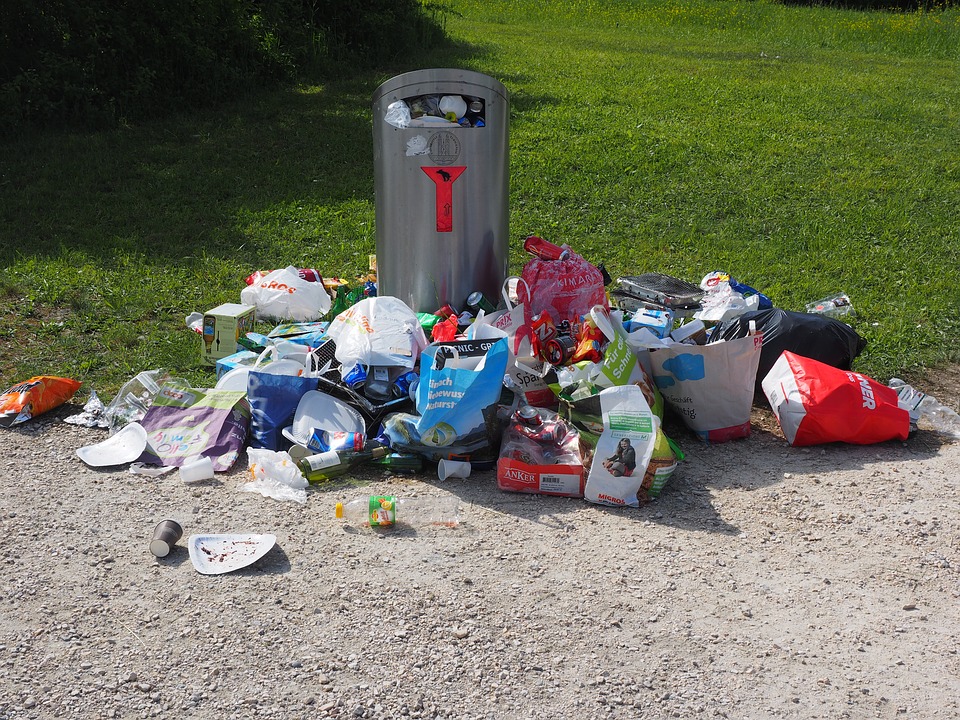 There’s been a lot of research conducted on how cities like Toronto can reduce waste. So many different ideas have been proposed however it’s unclear on how Toronto can successfully move forward. Most of the proposals introduced have focused on demotivating waste production and motivating pro-recycling practices. In some cases, philosophies have targeted the economic aspect, arguing that to pollute should come at a cost – particularly for small businesses and corporations. Here are some of the current ideas being debated by the City of Toronto regarding how they would discourage and limit waste, and encourage the development of more sustainable alternatives.
There’s been a lot of research conducted on how cities like Toronto can reduce waste. So many different ideas have been proposed however it’s unclear on how Toronto can successfully move forward. Most of the proposals introduced have focused on demotivating waste production and motivating pro-recycling practices. In some cases, philosophies have targeted the economic aspect, arguing that to pollute should come at a cost – particularly for small businesses and corporations. Here are some of the current ideas being debated by the City of Toronto regarding how they would discourage and limit waste, and encourage the development of more sustainable alternatives.
#1 – Deposit return programs
Programs that reward consumers who refund items that they’ve previously bought – such as a bottle, a non-alcohol aluminum can, or plastic container – has been highly recommended. Even items such as batteries and e-waste are believed to have some potential for these type of deposit return programs. Across Canada, deposit return programs has been responsible for an average 80 percent return rate, though these type of programs differ per province. Many organizations continue to push for Ontario to accept non-alcohol plastic bottles for deposit exchange, similar to provinces like New Brunswick, however Ontario has yet to accept or favor an initiative like this.
Read more: Do you Support these 5 Ways to Reduce Toronto Waste – a Discussion
What you Always wanted to know about Waste Management Trucks
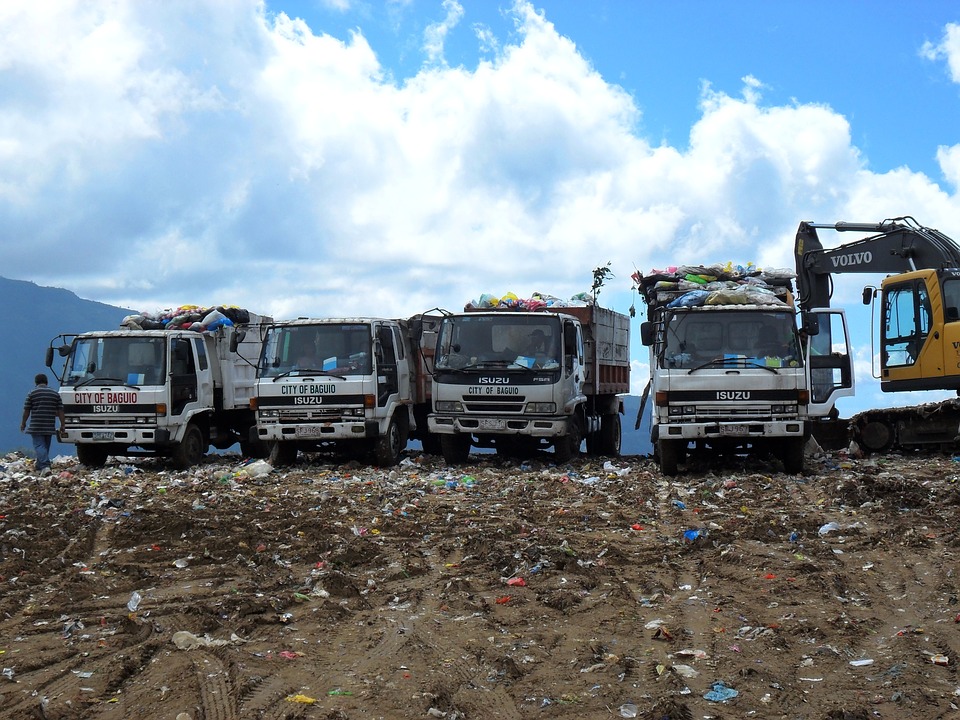 Waste management trucks get a bad name. These trucks are typically thought of as loud, noisy, rumbling industrial monstrosities. They are not exactly the most pleasant to look at either. That said, there’s a lot to waste management trucks that you might not be aware of.
Waste management trucks get a bad name. These trucks are typically thought of as loud, noisy, rumbling industrial monstrosities. They are not exactly the most pleasant to look at either. That said, there’s a lot to waste management trucks that you might not be aware of.
In Toronto alone, every day, hundreds of waste management trucks hit the road. Throughout the GTA, these trucks are tasked with collecting waste from condo buildings, construction sites, commercial businesses, residential homes, demolitions, renovations, and more. Every day, thousands of customers across Toronto are serviced. In fact, Toronto is one of the busiest cities in Canada when it comes to waste management. Toronto’s own Core Mini Bins is proud to be included among the waste management truck companies who serve the region. Making hundreds of stops across Toronto, hundreds of tons of waste are processed every day by these trucks.
Inside Core Mini Bins’ waste management trucks, there’s a lot to process. To begin with, the onboard computers we use in our waste management trucks help to direct drivers to different sites across the area. These tablets also help to track real-time data on location, customers serviced, and materials processed. Connecting to the dispatch center, this also makes it easier to communicate and ensure any immediate customer needs are resolved in a timely fashion. Also, service orders are easily assigned and, this way, waste management pick-up orders can sometimes be picked up same-day. At times, there may be issues at commercial sites such as dumpster rental bins being blocked. When there is, a call to the dispatcher can oftentimes help resolve the situation or at least provide an update on schedule.
Read more: What you Always wanted to know about Waste Management Trucks
These are the Challenges of Glass Recycling
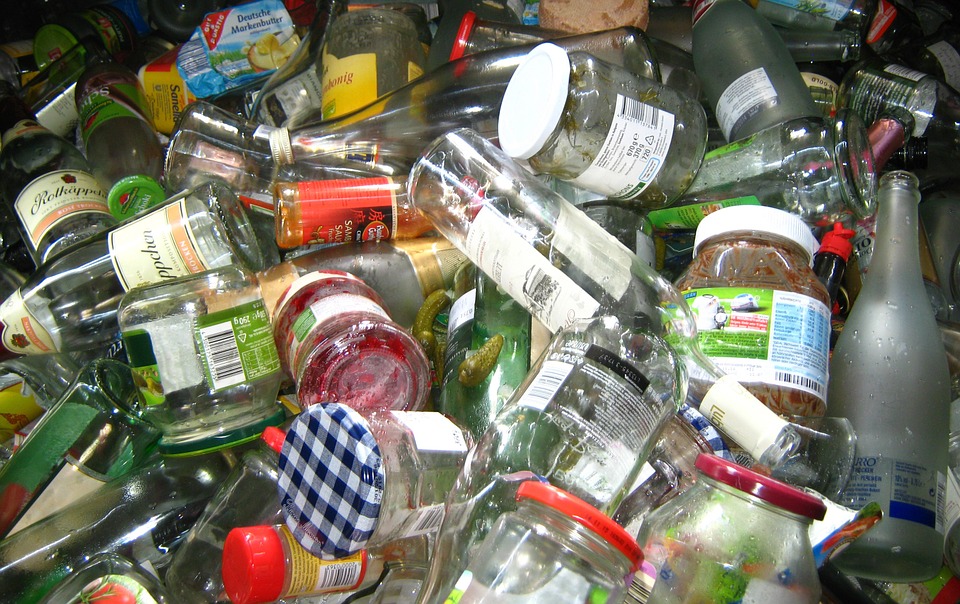 Across Canada, glass recycling is one of the most common recycling practices there is yet it comes with many challenges. It is notoriously abrasive on recycling equipment, the weight of glass is high meaning transportation costs are equally high, and attempting to separate it into single-stream is sometimes near impossible. In some parts of Canada, the economics of recycling glass don’t always balance out as well as one might hope. The future of glass recycling is heavily dependent upon improving existing processes and creating a more economically favorable environment for it.
Across Canada, glass recycling is one of the most common recycling practices there is yet it comes with many challenges. It is notoriously abrasive on recycling equipment, the weight of glass is high meaning transportation costs are equally high, and attempting to separate it into single-stream is sometimes near impossible. In some parts of Canada, the economics of recycling glass don’t always balance out as well as one might hope. The future of glass recycling is heavily dependent upon improving existing processes and creating a more economically favorable environment for it.
Throughout decades of increasing popularity in recycling, equipment has been continually improved upon. As more time passes, we are hopeful that glass recycling equipment can continue to progress and get better at handling the material. Collecting glass from neighborhoods across Toronto and the GTA, we know the amount of glass out there is significant. If we can successfully build the equipment needed to process it, there is no reason a long-term solution cannot be found. Current equipment can successfully process glass materials from used bottles through to new bottles, among other accomplishments. Needless to say, the wear and tear of glass on the equipment remains as an ongoing problem.
How to Prevent Bugs from Hanging Around while Waiting for your Waste Management Company
 As the hot summer weather sets in, issues related to pests and bugs circling commercial waste is a growing concern for many small business owners. Improper waste management processes only serves to attract infestations that can cause havoc for property managers.
As the hot summer weather sets in, issues related to pests and bugs circling commercial waste is a growing concern for many small business owners. Improper waste management processes only serves to attract infestations that can cause havoc for property managers.
When hiring a waste management company, they are not necessarily going to be coming every day to pick up the trash. That means it becomes the responsibility of the business to ensure their waste is being properly stored and managed in the interim prior to pick-up.
The first step in bug prevention in waste management is to evaluate the current processes. For inexperienced business owners, this will mean switching things up a little. Remember that pests need certain elements to survive – food, water, warmth, and shelter are a few. By denying them these, infestations can be almost eliminated altogether. Flies, mosquitoes, wasps and bees, and cockroaches are nothing to laugh at. Be sure to evaluate where, when, and how waste is being kept. In many cases, there may be a more effective way to manage one’s commercial waste.
Read more: How to Prevent Bugs from Hanging Around while Waiting for your Waste Management Company
Why Wal-Mart Committing to zero Food Waste is a Huge Victory
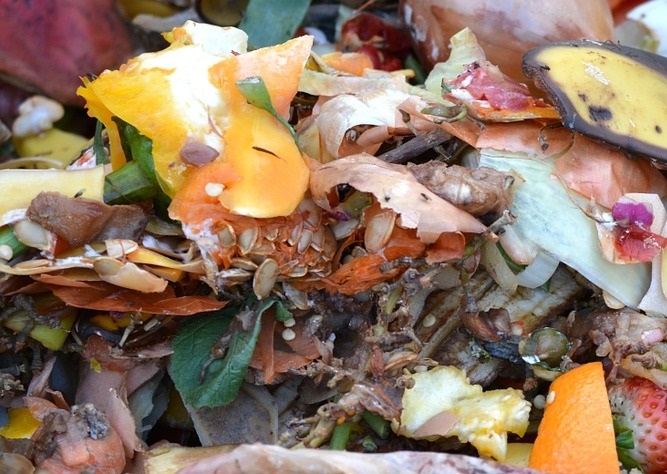 Wal-Mart recently made a commitment to zero food waste in all of its Canadian locations by 2025. This is big news for the recycling and food waste industry, and continues to support the philosophy that zero food waste is an attainable goal.
Wal-Mart recently made a commitment to zero food waste in all of its Canadian locations by 2025. This is big news for the recycling and food waste industry, and continues to support the philosophy that zero food waste is an attainable goal.
In the last few years, Wal-Mart has upped its efforts in waste management. The company currently distributes a fruits and vegetables-based employee manual Would I Buy It? which is designed to help employees identify items that are no longer appropriate for sale.
Across 411 Canadian locations, Wal-Mart has also implemented numerous food waste practices that have cut their overall waste down by approximately 23 percent since 2015. Then, in April, Wal-Mart announced an additional $19 million commitment through the Walmart Foundation to tackle systemic issues contributing to food waste.
Read more: Why Wal-Mart Committing to zero Food Waste is a Huge Victory
Why is Waste Management turning a Big Profit while Recycling Revenues are Struggling
 In region across Canada, waste management companies are seeing revenues soar. After all, waste management seems to be some pretty big business! Comparatively, recycling seems to be struggling as a cost-viable option.
In region across Canada, waste management companies are seeing revenues soar. After all, waste management seems to be some pretty big business! Comparatively, recycling seems to be struggling as a cost-viable option.
Why recycling revenues are so much lower than waste management profits for disposal companies can be attributed to many different reasons. The biggest reason seemingly appears to be contamination rates having increased in Canada in the past decade. As more municipalities have turned to recycling, the level of education on what to recycle has not necessarily followed the expansion. Thereby, contamination rates can be as high as 40 percent in some regions. Though recycling is a righteous goal, there needs to be more effort made to lower contamination rates. As contamination is allowed to continue to happen at such high percentages, this has a significant financial impact on recycling revenues.
In addition to contamination being an issue, transportation costs for recycling are an issue. Waste management processes have been ongoing for decades while some recycling processes are still new. This means having to transport materials across further distances to get them to reach the assigned recycling plants. Ideally, in the future, there will be more localized recycling processes with a wider variety of facilities to accommodate all kinds of different materials. Further adding to recycling operating costs, what one can get for the material recycled has shrunk comparatively to last year. Some commodity prices have fallen by as much as 36 percent compared to last year, meaning the materials recycled are not able to be sold at the same rates and thus providing lower returns.
Read more: Why is Waste Management turning a Big Profit while Recycling Revenues are Struggling


